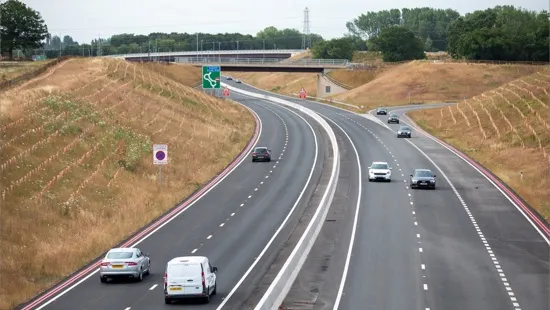
A £495 million contract has been awarded by National Highways to AtkinsRéalis Jacobs Joint Venture, Ove Arup & Partners, Amey, Arcadis, Costain, and WSP in collaboration with Mott MacDonald. This for a new Specialist Professional and Technical Services Framework (SPaTS3) contract. The firms will have been selected by National Highways for the SPaTS3, technical engineering advice framework.
This advisory and engineering role is intended to help the highways network drive economic growth, improve safety and reliability, and further the UK’s decarbonisation goals. This builds on the foundations laid under the SPaTS2 framework, which Costain was previously selected for. The SPaTS3 Framework has an estimated maximum value of up to £495 million to the six suppliers over its six-year term and will cover the whole of Roads Investment Strategy 3.
The services under the framework will encompass geotechnical engineering, asset operation, maintenance, assurance, performance, design standards manuals and departures, environmental, highways structures, sustainability, and transport engineering services.
The previous framework, SPaTS2, facilitated specialist advice and support through the Second Road Investment Strategy.
The 2.4km stretch initially opened with one lane running in both directions at the end of last year but now permanent traffic management has been removed, and the road is fully up and running helping to relieve traffic congestion at junction 6 and poor journey reliability in the area.
So far, HS2 works, utility company work and National Highways maintenance and survey schemes have been completed during the M42 closures and project teams working in the area continue to identify opportunities to reduce disruption and save money.









